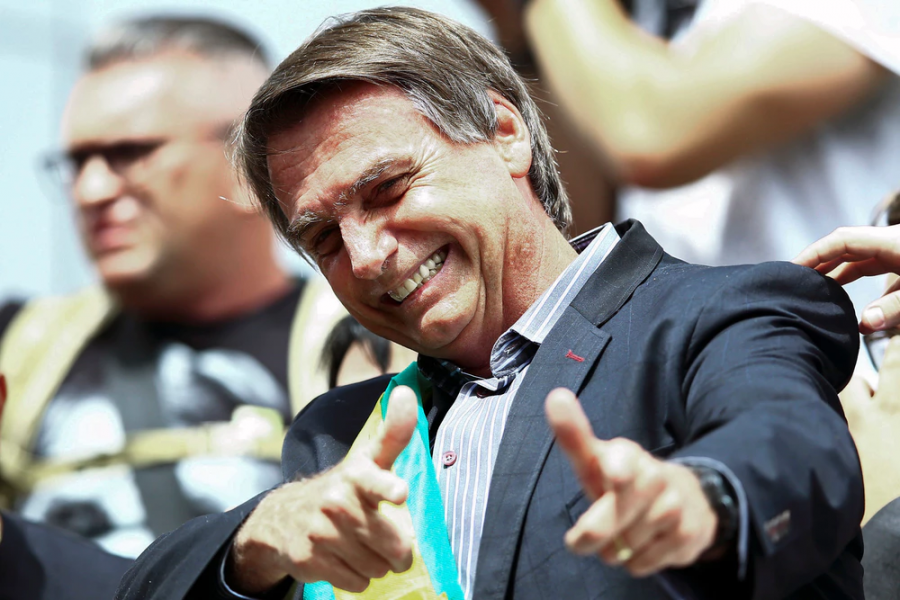Jair Bolsonaro Elected President of Brazil
“Ordem e progresso.”
Bolsonaro giving his signature “finger-gun” symbol to his supporters during a rally. Photo courtesy of Hueler Andrey.
November 2, 2018
The ballots are in, and the results are clear. Jair Bolsonaro, leader of the Social Liberal Party, has been elected President of Brazil. In both rounds of voting, Bolsonaro swept the floor, winning 46 percent of the vote in the first round of voting and 55 percent in the second round, compared to the 29 and 45 percentages of his primary opponent, Fernando Haddad of the Workers Party.
Bolsonaro, a former paratrooper in the Brazilian Army and a member of the Chamber of Deputies (Brazil’s lower house in Congress) representing Rio de Janeiro, has had a long history in Brazilian politics. He first entered the scene in 1986, when he wrote an article in a local newspaper protesting against low wages for Brazilian soldiers. While he was arrested for this, it endeared him to much of Brazil’s military, traditionally a very strong force in Brazilian politics. He rejoined the military as a reservist two years later and was elected as a member of Rio de Janeiro’s City Council, which served as a stepping stone for his election to the National Congress in 1990.
During his tenure as a congressman, he became well-known for his extreme conservative stances on a plethora of issues. He has vocally opposed topics such as abortion, same-sex marriage, drug liberalization, and religious secularization. In a controversial interview with Playboy, Bolsonaro stated that he “…would be incapable of loving a gay son,” preferring that they would die in an accident rather than be gay. In another incident, he purportedly advocated for the forced sterilization of the poor and uneducated in Brazil, believing they were “not prepared” to receive an education, according to The Independent.
Bolsonaro’s presidential campaign has also been noted for its controversial stances on many issues. According to The Guardian, Bolsonaro repeatedly endorsed authoritarian governments and praised Brazil’s prior military dictatorships. He also stated that he would give the police special permission to basically shoot first, and ask questions later; this coincided with his statement approving Rodrigo Duterte’s anti-drug campaign in the Philippines. This has led to a great deal of protests against him, and in one infamous incident, an assassination attempt via stabbing, which left Bolsonaro hospitalized. However, he made a swift recovery and was back on the campaign trail after a month.
In the end, Bolsonaro’s election ultimately comes as no surprise. Much of his rhetoric has to do with ending the rampant corruption inherent within Brazilian politics, and he presents himself as an anti-establishment figure – despite being a member of the Congress for over two decades. However, his words were convincing enough to guarantee his victory in the election. Now, we wait to see what he’ll do once in power.














